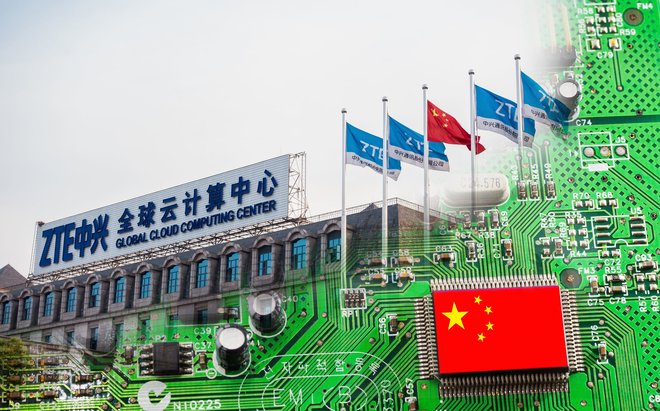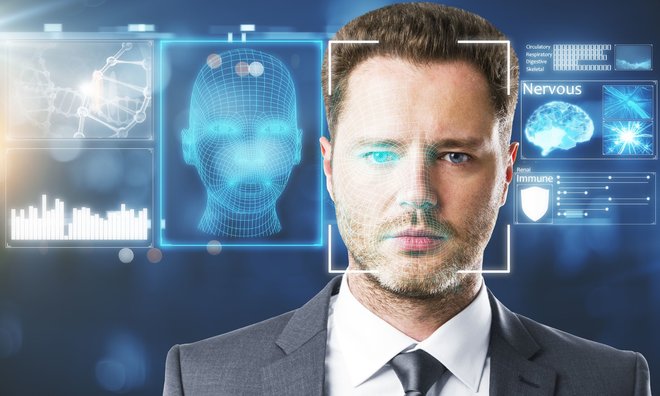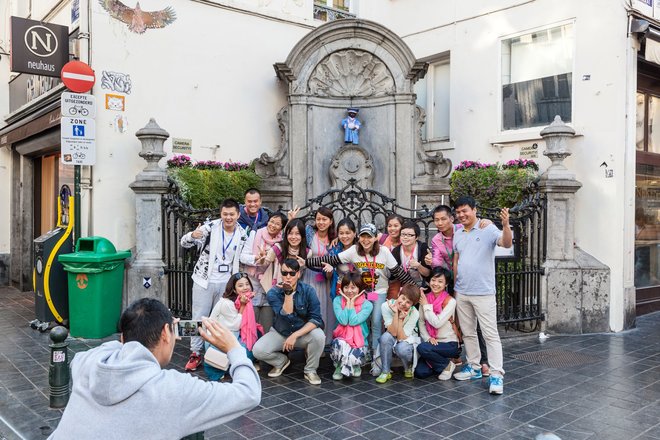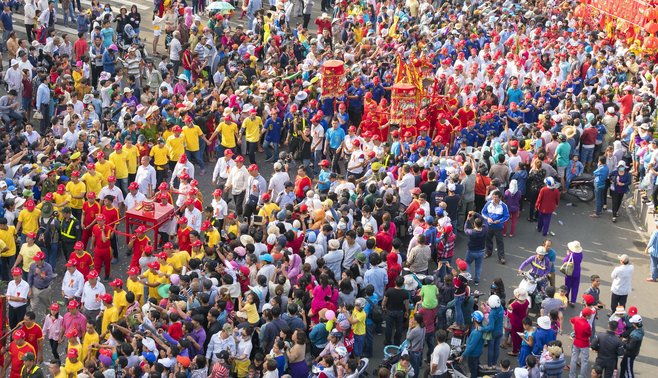In conversations about surveillance states, China is always mentioned. The country makes use of modern technology to monitor its 1.4 billion citizens like no other. Strong censorship of all media outlets (including the Internet) is quickly becoming old hat as the country turns towards face recognition, voice analysis and information clustering to create a "social credit system". Reason enough to take a closer look.

You may be familiar with some form of credit bureau like Equifax. It is a collection agency that gathers information from various creditors to assess your creditworthiness among other things. But what if there was a database that kept records of your traffic behavior or your political party membership? This may seem like an odd idea - unless you're living in Rongchen (China) where the government is field-testing a reputation system that classifies citizens by number scores. Each citizen starts with 1,000 points and earns or loses points based on their conduct. For this massive undertaking to work, a lot of IT tech is required. Aside from linking various databases (credit standing, criminal record, party membership, club associations etc.), cameras that support face recognition are also part of the program. Who fails to provide assistance to traffic accident victims? Who throws their garbage into the street? Thousands upon thousands of cameras are now watching everything. What used to fill large personal files under Mao is now condensed into data set I with corresponding scores.
The rules are simple: support your parents and you'll earn extra points. Commit DUI or any other traffic violation and you'll lose some. Once you reach 1,300 points, you'll be ranked AAA and enjoy several perks. You'll pay less for heat and water, no longer have to make security deposits and enjoy a greater degree of freedom to travel. If you drop down to lower levels (like rank C at 600 points), you'll have a hard time finding a job, won't get any promotions and will be barred from booking flights. To escape this level, you'll have to do good, for example, by paying off your debts. What kind of information will be stored is still under debate. Maybe your friendships will also play a role. Too many "suspicious" contacts might cost you a few points. Naturally, your online behavior will also be scrutinized especially when you make critical comments. Do you criticize the party? Get ready to hand over those points!
The social credit rating has the potential to become a central status symbol. Which school do your kids attend? Will you get that loan or that nice apartment? The pressure will affect everyone both at home and at work. What will happen to your score when your restaurant isn't clean? What if customers complain or demand a refund? If all you see is a means to exert control, you're missing another aspect. It appears China is trying to cultivate a civil spirit, through mild coercion, naturally. Obeying traffic regulations is just the beginning (one of my friends got perplexed looks when he stopped at a crosswalk in China). Mutual respect and good conduct are among the goals of this approach. Many Chinese see room for improvement in their daily interactions and welcome this development. That it likewise spells the end of privacy is simply shrugged off - they didn't have much privacy to begin with.
 Face recognition - an essential part of modern surveillance
Face recognition - an essential part of modern surveillance
Face recognition and AI are also poised to conquer Chinese classrooms. A pilot project at a secondary school in Hangzhou provides teachers with three overseers. Cameras above the board monitor students in tandem with a software that analyzes facial expressions. Happy or neutral faces are ignored but seemingly bored, disinterested or distracted students trigger a signal. The system is supposed to provide a detailed picture of attention spans especially for large classes. A number of success stories have already been reported with students no longer daring to signal disinterest. Whether these students simply opted to make a fake happy face or suddenly have a genuine interest in their classes is unknown. I wonder how parents would respond in the West: would teachers be tarred and feathered first and then schools set on fire or the other way around?
How people can accept this situation is beyond me. Reason enough to give my former fellow university student Lian* a call, since he's been moving between cultures for decades. Lian* initially points out carefully that he can't speak for all Chinese and that he's been partially germanized over the years, but he still agrees to talk. I'm aware I'm touching on a lot of issues and I won't claim 100% truthfulness for the following statements. Yet I find his opinion noteworthy and readable. Read on for a (redacted) summary of our 80-minute interview.
"This topic is extremely complex and it would definitely help your understanding if you had lived in China for a while. I believe most people are currently striving for three things: stability, security and prosperity. As long as a policy heeds these points, any other aspects will be accepted blindly. Don't forget where we're coming from even though we don't like to talk about it: many relatives from my parents' and grandparents' generation have perished through hunger, wars or political unrest so I never got to meet them. Looking back at the past 100 years, we had the Republic of China followed by the young People's Republic under Mao-Zedong that saw millions perish or faced with a permanent struggle for survival. A lot was destroyed back then both on an interpersonal level and between citizens and the authorities. Today, we are an economic powerhouse and a military might. We're proud of what we have achieved. Sure, poverty and corruption are still an issue but things are looking up. There are constants in our lives and there is a general feeling that we can achieve anything together as long as we work hard, make full use of our potential and keep a sense of equanimity. Many have already climbed the social ladder. My parents took a trip to Europe last year and visited Vienna, London and Paris. 30 years ago that would have been unthinkable!

The freedom you like to talk about is not primarily an end in itself for us. It requires an established order and proper societal conditions. What good is freedom, if chaos and hunger are rampant? And freedom isn't limitless but bound by social norms. It shouldn't disrupt order. The Confucian social also takes a different view on power and control. As long as people in power act in the best interest of the people, the people should not complain, period. If the people are well, the government has a lot of freedom to act. The relationship should be governed by harmony. No one likes to see the harmony disrupted by either the party of the people.
You tend to consider yourselves individuals first. We value the people and the common good achieved by each individual. How can you as an individual contribute to the well-being of the people through your job and your individual talents? Do you treat your parents right, do you pay your bills, do you obey the law and do you provide assistance to others? That's what this score (he's referring to the social credit system) reflects, to reward those that act this way. It's certainly an educational measure but it also improves security since you'll know exactly who you're talking to. Personally, I'd rather my daughter marry a man who is a role model in this respect. Contrarians and non-conformists will quickly suffer the consequences but everyone gets a chance to redeem themselves. It's a better approach than only finding out about one's many transgressions in prison.
 No more anonymity in this crowd
No more anonymity in this crowd
Our stance on fighting crime is similar. You almost turn some of your criminals into celebrities by writing books or creating t-shirts and other fan items. I don't understand that and it would be unthinkable in China. These are not good people. An example: recently, officers identified a criminal through face recognition in a concert crowd of 50,000 people and your media reported on that. It worked even though you believe we all look the same [laughs]. To many, this was a welcome sign that it has become impossible for individuals to hide in the crowd. After all, who wants to stand next to a criminal? Crime rates in Japan are low partly because criminals expect to get caught. This surveillance technology could be used to achieve something similar. Everyone would know that they'd be found out eventually so they'd be motivated to act well and stay out of trouble. Maybe it's the only way to keep such a large population in check.
The intertwining of Confucian and economic ideas also plays a role in our educational system. According to Confucius, education is the only way for humans to realize their full potential and better themselves. This was a revolutionary idea some centuries ago since he included everyone not just the rich and powerful. Naturally, the economy needs skilled workers so there's a lot of training and rote memorization involved. Camera surveillance fits in perfectly with this picture: bored or distracted children indicate that something is amiss. They have to be admonished and teachers have to ask themselves how they can improve their classes. Ultimately, cameras are simply an additional pair of eyes for teachers."
I hung up a little lost in thought. I didn't get all the way to the core of the matter but I can understand why my interviewee took a rather defensive stance. Differences in mentality are hard to bridge. Still, I'd very much like to know your opinion on this. Can you relate to Lians'* thoughts?
*name changed by request




Excellent post which I knew would invoke interest Sven....I note you did not include my long post for perhaps security reasons?... I appreciate your discretion Sir...But did you get a chance to read it?...Best Regards
Once again, I approved every single comment, we don’t have censorship here at Ashampoo. Unless its SPAM or completely off-topic, your comments will always be approved. The comment system seems to have issues with exceptionally long comments as they simply don’t get to us – for whatever reason. Our admins’ guess is that the session has expired before the comment is submitted but we’ve so far been unable to reproduce the issue. Over in the German blog, I’ve already recommended readers use Microsoft Word or another text editor to write the posts and then copy and paste them into the comment section.
Thanks for the interesting story Sven,
It's hard to imagine living a life to receive points for being a normal, sensible, well-mannered, considerate, unselfish, honest, clean-living, ethical, respectful person which was instilled into a child's upbringing by responsible, caring parents in the 1940's and 1950's in Britain where I was born, and does not mean that other Western countries' responsible parents raised their children by similar methods.
Where does the foundation of fault currently lay as many people in today's society class themselves as 'normal' but seriously lack some, or all of the attributes written above.
If peoples' attitudes in our current society continues to move in the wrong direction in which it is moving at present then we need a points system immediately, beginning with our political servants.
Vielen Dank!
Admittedly, I’m curious to see how some people would fare in such a ranking. :) Still, I find it hard to believe this would be enough to make up for parental shortcomings.
A brave New world, Aldous Huxley, 1984 big brother George Orwell. Think about that.
there's a lot of hoo ha about the chinese russians etc but the problem we have is belguim trying to rule britain (THIS WILL NEVER HAPPEN )
Rock bottom the difference is they either trust their government or big brother much more than we do or fear it enough to comply. But one thing about human nature everywhere....the system won't protect you from abusive administrators and they are everywhere.
Sounds exactly what the United Kingdom and the United States of America is pushing toward now.
So why single out China for doing what we in the west have been doing for the last quarter of a century.
I’ve seen all the cameras in England and I found them rather scary. It’s still a huge step from this type of camera surveillance to a score-based school surveillance system but who knows that the future will bring?
This concept may seem to be what is necessary in order to bring civility back to the population of the US. However, someone decides what actions are good and what are not, and it immediately gets misused. If it gets people to stop shooting each other, stop road rage, ends hatred and prejudice, it could be good, but not if it means everyone must become politically correct, lock-step with one political party or the other. If we could only go back to the time when people followed the rule of law, if they didn't like a law they petitioned to change it instead of simply ignoring it. The one thing the world needs today is respect. For oneself, for each other, for our institutions.
"Contrarians and non-conformists will quickly suffer the consequences."
Consider the "Brave New World" and "1984" credal and political ramifications of that statement. Will such a system create implicitly moral people? Are the people who administer the system and make the judgments of others morally righteous? Are they not just as corrupt as the general populace — or, per the history of Communism perhaps *more* corrupt? (Mao, for example, and the Red Guards were *thoroughly* corrupt.) WHOSE definition of morality? Based on WHAT ultimate reference point?
To what extent will this system be used to increase religious persecution? The Three Self state-run church is at least partially a sham, and the underground Church is often ruthlessly suppressed...however unsuccessfully in terms of its proliferation. To what extent will these measures suppress creative thinking, expressions of truth (vs. official lies), and needed dissent? How will they be used to suppress exposure of corrupt leadership? How might they be used to *promote* evil? You can add to this list of concerns.
True integrity can *only* be internal. It cannot be forced or manipulated by an inevitably corrupt system, created by corrupt people afflicted with the 'human condition'.
Regardless of any ostensible short-term benefits of *superficial* (vs. integral) behavior modification, I predict that this new tool in the totalitarian bag of tricks will ultimately prove disastrous.
Australia has cameras everywhere, and is introducing facial recognition in just as many places. No rewards for good behaviour though. Just the stick. China has the right idea, and I applaud them. The UK has more cameras than the rest of the world combined, and they use these to spy on their citizens. It is said you can be tracked from your front door to any point in England with very few hidden points of view. China is vast, and this is not possible. Yet China is always accused of being the worst of the worst. We need to learn some things from China, and start to use technology to help our fellow citizens. Unlike the USA, which spies on every citizen on earth and never uses that for any good purpose. I am more worried about the USA, than I am of a citizen-centric nation like China. As least the Chinese government does not commit treason against her own citizens. Australian government does. The USA created terrorists and uses this threat to steal their citizen's rights and liberties. In Australia, we have none to lose, but if you can believe it, we are becoming even more controlled. So much for a free country. Only free for the Asylum Seekers, or so it seems.
Already in progress in America. And if you think not, you are intentionally delusional.
In the context of the population size, history and culture the policy may be acceptable and for the public good as Lian suggests. As Harry Smith notes, the civic pride ethos was taught in the UK in the 1940s but does not seem to be popular today.
However one does wonder why Lian* withheld their identity.
*name changed by request
Have you Heard of the saying Deep Thought???
Seems to say it all...............
On the face of it. Whilst it may be open to abuse. The virtues of consideration for others. And the behaviour in public, school, etc. Pride in your country. Were all taught to us, back in the early forties. So no problem there. Being rewarded for good behaviour sounds attractive.